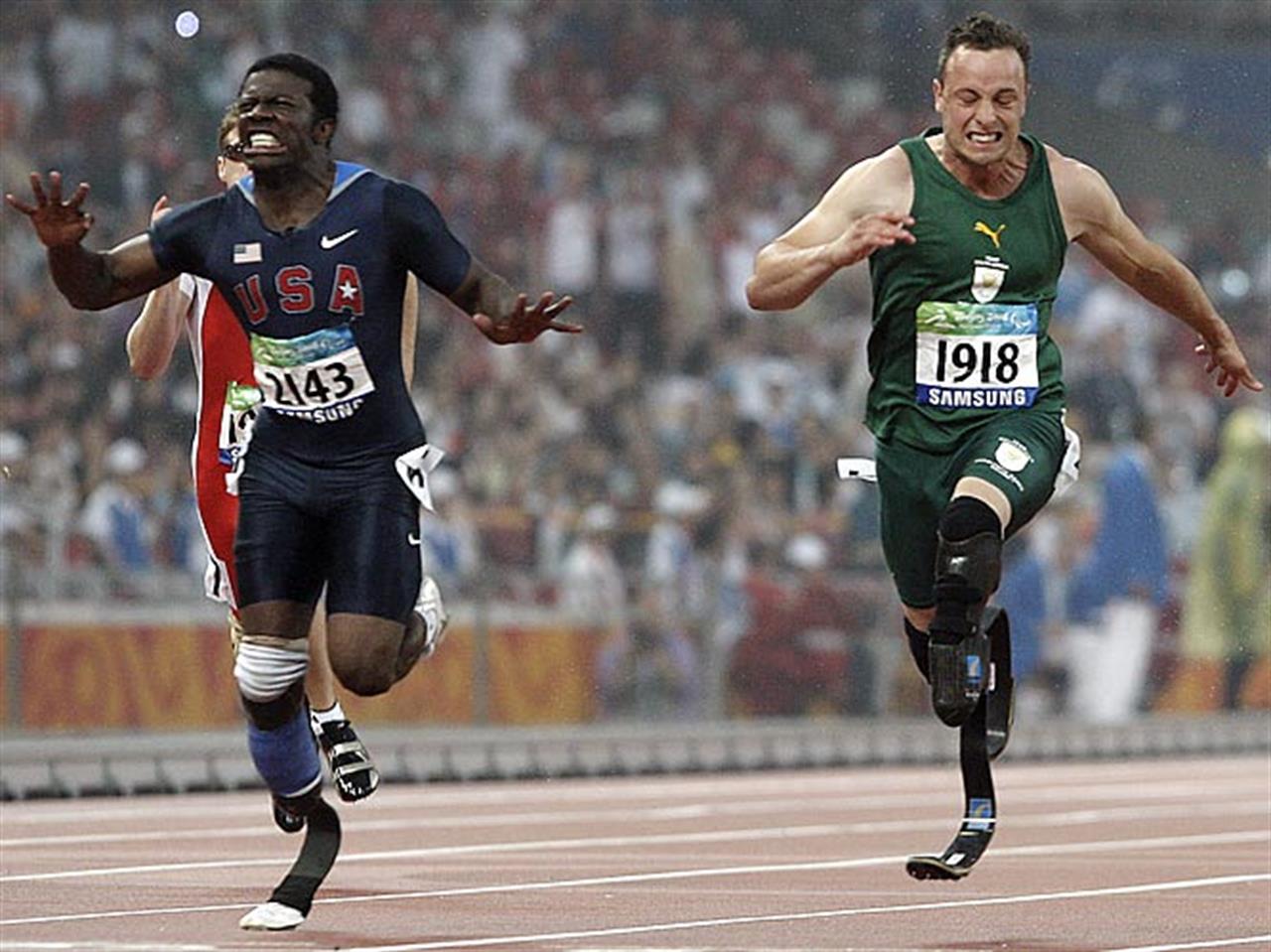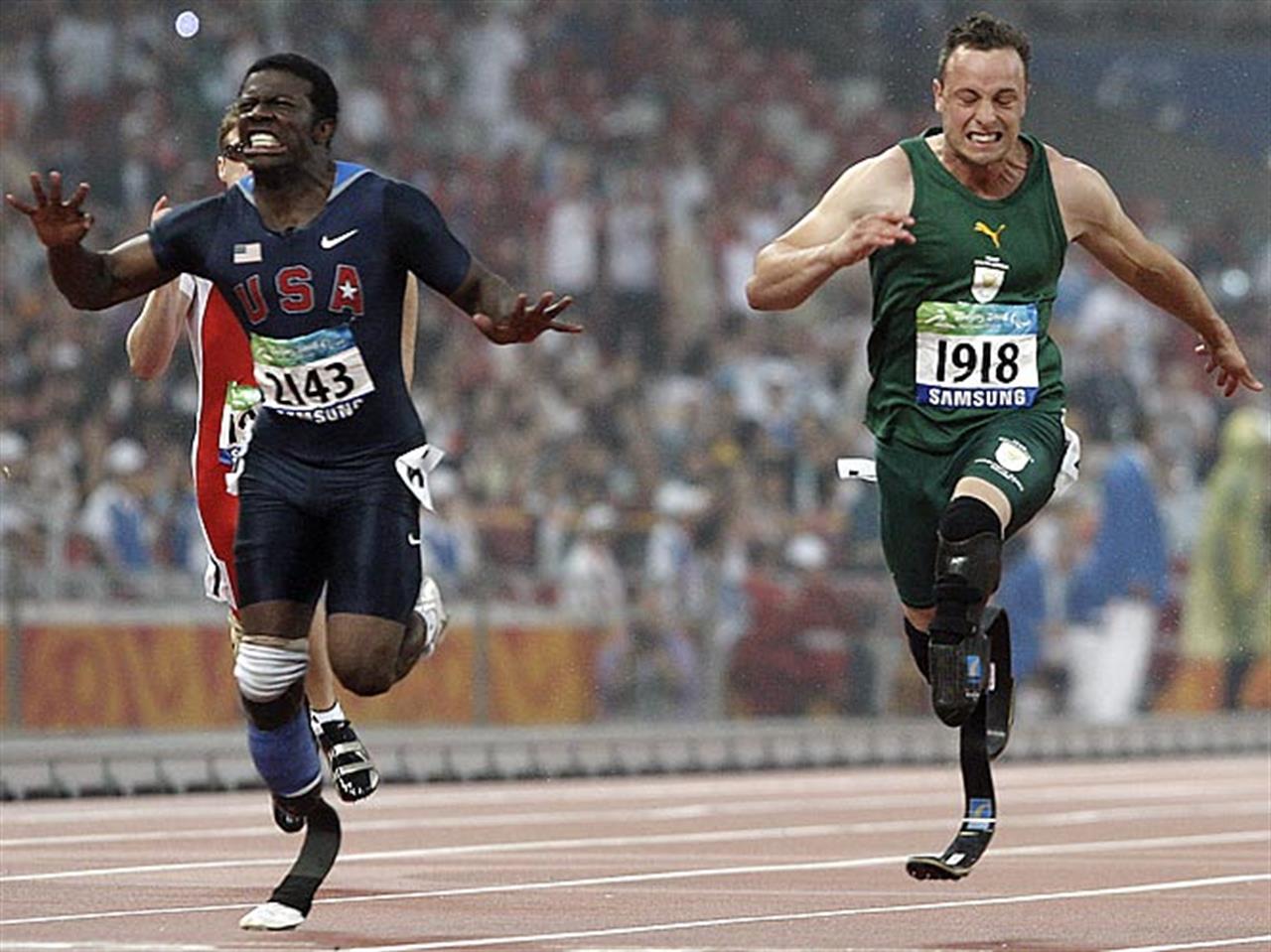The solution to the crisis lies in unlocking the potential: the Paralympics proved it


Perhaps I shouldn’t write in my blog that I have never been thrilled by the Olympic Games… but the Paralympics got my attention for the first time. Actually I got emotional, even passionate sometimes, watching those athletes who strive for glory, overcoming a penalising start complemented by the pity of society.
I have never thought of the Paralympics as a real sporting competition but London 2012 taught me (+ Ricard’s and John’s tips) that I was wrong: it doesn’t matter how far you have to go start as long as you give every tear and drop of sweat to win.
I found the determination of these fellows energising. I found the real meaning of those buzz words such as big society, social innovation, social business that we policy acolytes repeat like parrots to the point that we start believing they are real. They ARE real, but thanks to athletes such as Pistorious. He was not just able to win 400m but invented a new sport, unlocking the potential of all the other people who are not stopped by their physical disabilities, and expanding the boundaries of dreams for everybody else. He has delivered for policymakers thirsty for economic growth and jobs, becoming the live advertisement of a new industry producing artificial prostheses for athletes.
In the bravery of Paralympic athletes we can find the solution to the crisis in Europe. Neither the pity for ourselves nor the anger towards the political elites and financial markets will take us out of the dust. We can only rely on our skills, strength and entrepreneurship to succeed in the challenge we all face.
On Twitter, I came across the blog of Brodie Boland in the Stanford Social Innovation Review: Citizens as Designers. He calls for a new kind of democratic engagement which is not based on decision over choices proposed by others – as consumers choosing between products – but deliberation and design of the solutions.
I quote Boland as he summarised the question we face just in two paragraphs: ‘Our political structures are strained because their foundations have shifted. The tools of the current political system—voting, legislation, parties—were built to decide between existing options. However, the problems we face today do not come with an obvious list of solutions. Reducing deficits, addressing climate change, and preventing major security threats—these challenges require creativity and innovation more than debate. And so the proverbial hammer finds a nail, and the political system’s attention shifts from the tough questions to those few issues that have preexisting and polarizing options. The result is increasingly acrimonious debate about increasingly immaterial issues, while the important problems fester. We focus our political resources on deciding between options, and leave the design of these options to chance.
This deciding paradigm diverts institutional resources away from innovation and toward conflict, and fails to tap into the knowledge and ingenuity that we all possess. Our primary role as citizens is checking a box beside our preferred option on the ballot. That the poverty of this notion of what we can contribute does not seem absurd to us only speaks to how entrenched we are in our ideas of what democracy is. In a world where we use mass collaboration to design products, generate knowledge, and create markets, why do we accept such a constrained role in the political realm? This should seem as anachronistic to us as the typewriter or the telegraph—quaint, useful for its time, but ultimately too limited’.
Boland’s words remind me of what Diogo Vasconcelos used to repeat when he strolled Brussels’s corridors of power up and down to convince the Commission to adopt the social innovation agenda: ‘The solution to the crisis comes from the people engaged to co-design and co-produce the solutions dislodging the incumbents when they become gate-keepers’.
The European Commission has made him a martyr – and on 1st October a social innovation prize will be launched by Barroso in his memory – but I’m not sure it is really implementing his ideas. Actually, only Commissioner Barnier and his team in charge of social enterprise policy are Diogo’s true heirs in Brussels. But this is another story. I this not with European affairs, or I will get depressed again. I finish with another story, another encounter that inspired me equally: Jas Bain, who thrives to overcome the crisis in his community, daring to experiment with new solutions.
Jas runs the Ashram Housing Association: the organisation has an annual turnover of £110m, assets worth in excess of £600m, employs 4000 people and provides services for 40,000 in the Birmingham area. He doesn’t see his remit limited to building affordable housing and providing care to their tenants but tackling the roots of poverty and exclusion in the communities where he operates. He builds the infrastructure for those people to regain self-esteem and enterprise to improve their own lives. Jas has even set up a social investment fund to support young people who want to start a company. He didn’t ask the local authority for any funding but his charity has provided the seed-funding.
Jas is an example for any leader whose organisation has the resources to step beyond the comfort zone and invest in the future. Jas, as do the Paralympics athletes, reminds us that we all have talents – but we need to use them to succeed.
Vuoi accedere all'archivio di VITA?
Con un abbonamento annuale potrai sfogliare più di 50 numeri del nostro magazine, da gennaio 2020 ad oggi: ogni numero una storia sempre attuale. Oltre a tutti i contenuti extra come le newsletter tematiche, i podcast, le infografiche e gli approfondimenti.
